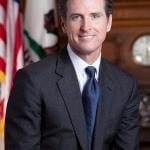By now, the number of people who know about American evangelicals’ hypocrisy in voting for Donald Trump is almost as high as the number of people unaffected by COVID-19 (which is high, over seven and a half billion). What is less well known is the hypocrisy that pervades even those sectors of evangelicalism opposed to the POTUS.
Consider the example of Randall Balmer in a recent piece for Sojourners. There he shows somewhat convincingly that nineteenth-century evangelicals opposed capitalism, which functions as a not so subtle (or convincing) endorsement of Bernie Sanders:
If we return to evangelicalism in the 19th century, we see that evangelicals were highly suspicious of free-market capitalism. Indeed, many evangelical sentiments in the antebellum period would be considered radical by the standards of both the 20th and 21st centuries. Charles Grandison Finney’s understanding of the Christian faith and duty led him to a suspicion of capitalism because it was suffused with avarice and selfishness (a critique shared by many Roman Catholics as well). . . .
The excoriations of capitalism and wealth on the part of evangelicals in the 19th century make Bernie Sanders’s perorations sound timid by comparison. Evangelicals of an earlier age, long before the advent of the Religious Right in the late 1970s, understood the spiritual perils of acquisitiveness. They warned against the seductions of wealth, and they recognized that the tenets of capitalism — selfishness, greed, “the desire to possess” — ran counter to the mandates of the gospel and the words of Jesus to care for “the least of these.”
Few evangelicals of the 19th century identified explicitly as socialists. But their jaundiced view of free-market capitalism place them far closer to the ideas of Bernie Sanders than to the rhetoric emanating from leaders of the Religious Right.
The difficulty in Balmer’s argument is that he holds an endowed chair at Dartmouth College, an institution in the Ivy League with — at least until COVID-19 infected Wall Street — an Ivy-League sized endowment. Here is how well endowed Dartmouth was only a year ago:
Dartmouth’s endowment generated a return of 7.5% for the fiscal year ending June 30, 2019, bringing its total value to $5.7 billion.
In fiscal year 2019, Dartmouth’s endowment contributed over $250 million to the annual operating budget in support of priorities such as robust financial aid packages and faculty compensation, both of which assure Dartmouth’s competitive edge in providing a world class liberal arts education and research environment for all of its students and faculty.
Unless I am missing something, capitalism has benefited Dartmouth College and its endowed chair holders well.
This does not mean that professors like Balmer cannot recommend socialism or candidates like Bernie Sanders simply because their paycheck comes at least partly from funds that depend on capitalism. It does mean, however, that that you may want to acknowledge, in a self-disclosure kind of way that you seem to benefit from the very economics you denounce. Otherwise, your own venting about evangelical hypocrisy could well turn out to be another version of Captain Renault’s experience at Rick’s Cafe.












